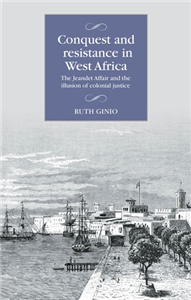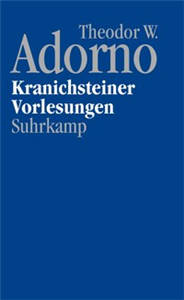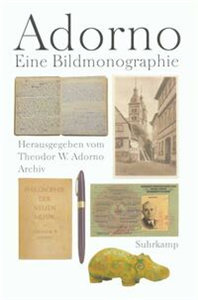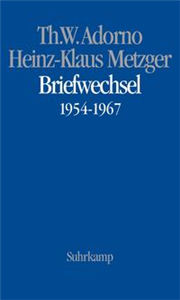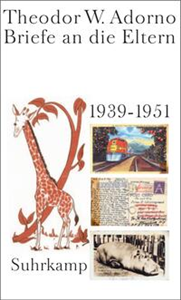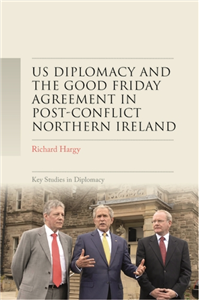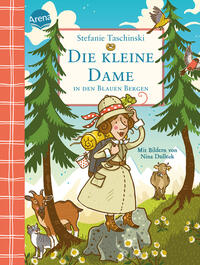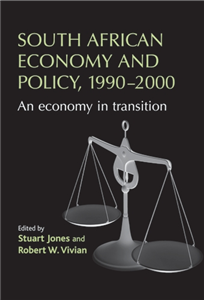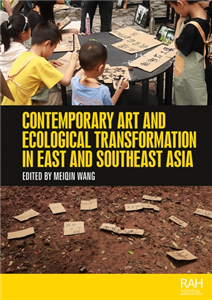Your Search Results
-
West 44 Books
West 44 Books, our new hi-low middle grade and young adult fiction imprint of Enslow Publishing, is an exciting platform for new, authentic voices and gripping stories. With West 44 Books, struggling readers, especially those from at-risk populations, and those learning English no longer have to sacrifice page-turning fiction. Readers ages 8 to 13 encounter stories about everything from the paranormal to basketball to the everyday challenges of middle school and family life. Young adult readers ages 14 and up can choose from stories on topics such as social justice, drug abuse, and gender identity. West 44 Books also offers young adult novels in verse, which combine the powerful, rhythmic language of poetry with riveting storylines. West 44 Books ensures that every reader is able to get lost in a book and find themselves on its pages. For excellent nonfiction selections, see our exciting titles at Rosen Publishing, Gareth Stevens, Enslow Publishing, and Cavendish Square.
View Rights Portal
-
Promoted ContentHumanities & Social SciencesJuly 2025
Conquest and resistance in West Africa
The Jeandet Affair and the illusion of colonial justice
by Ruth Ginio
This book is an enthralling account of a legal scandal, which erupted in colonial Senegal in 1890 and reached the French metropolitan press and the parliament. The murder of a colonial administrator, Abel Jeandet, by one of his soldiers led to the brutal and illegal executions without trial of the killer and two local dignitaries. The volume follows the fascinating story of Ndiereby Ba, the widow of one of the dignitaries, who with the help of powerful métis men in the capital Saint Louis sued the French administrators who had supervised the executions for the murder of her husband. Through this captivating tale the book articulates the French expansion into West Africa, the resistance to colonial rule both violent and non-violent, and the lack of interest on the part of French politicians in the brutal conquest of a territory they know nothing about.
-
Promoted ContentFebruary 2014
Nachgelassene Schriften. Abteilung IV: Vorlesungen
Band 17: Kranichsteiner Vorlesungen
by Theodor W. Adorno, , Klaus Reichert, Michael Schwarz
Ein Jahr nach Kriegsende fanden in Schloss Kranichstein bei Darmstadt zum ersten Mal die »Internationalen Ferienkurse für Neue Musik« statt. Sie markierten den Beginn des »musikalischen Wiederaufbaus« in einem Land, in dem die Neue Musik noch kurz zuvor als »entartet« galt, und entwickelten sich rasch zur international bedeutendsten Veranstaltung zeitgenössischer Musik. Seit 1950 nahm Theodor W. Adorno regelmäßig an den »Ferienkursen« teil und wurde für mehr als ein Jahrzehnt zu einer ihrer bestimmenden Figuren. 1955 hielt er dort seine erste Vorlesung – unter den Hörern waren Pierre Boulez und Stockhausen − und lotete am Beispiel des jungen Schönberg das Spannungsfeld zwischen Tradition und Avantgarde aus. Dies blieb das Leitmotiv auch der weiteren Vorlesungszyklen, etwa dem über »Kriterien der Neuen Musik«. Daneben geht es immer wieder um jene kompositorischen Probleme zeitgenössischer Musik, die Adorno 1954 in seinem berühmten Vortrag über »Das Altern der Neuen Musik« benannt hatte und der die Kranichsteiner Diskussionen befeuerte. Die in diesem Band versammelten Vorlesungen, nicht selten von Adorno mit teilweise von ihm selbst auf dem Flügel improvisierten Musikbeispielen begleitet, sind ein einzigartiges Dokument zur Theorie und Geschichte der Neuen Musik. Man kann sie nun erstmals im Zusammenhang und im Wortlaut lesen – und dank des beigegebenen Tonträgers auch hören!
-
 Trusted Partner
August 2003
Trusted Partner
August 2003Adorno
Eine Bildmonographie
by Theodor W. Adorno Archiv, Henri Lonitz, Christoph Gödde, Gabriele Lieselotte Ewenz, Michael Schwarz
Eine Vielzahl von bisher unpublizierten Texten, Bildern und Dokumenten eröffnet eine neue und unerwartete Perspektive auf das Leben und Werk Theodor W. Adornos. Von den frühen Zeugnissen aus der Kindheit, wie etwa einem bisher unbekannten Jugendtagebuch, das transkribiert und z.T. faksimiliert vorgelegt wird, über Dokumente aus seinen Studien- und Exiljahren bis hin zur Rückkehr nach Frankfurt und seiner Arbeit am Institut für Sozialforschung und an der Frankfurter Universität verfolgt der Band das Leben Adornos am Leitfaden von überaus anschaulichen, prägnanten, im besten Sinne »sprechenden« Zeugnissen. Neben einem weiteren Tagebuch aus dem Jahr 1949 finden sich zahlreiche, hier erstmals veröffentlichte Briefe, Notizen, Kompositionen, Photographien und Skizzen aus seinem Nachlaß.
-
 Trusted Partner
November 2026
Trusted Partner
November 2026Theodor W. Adorno, Heinz-Klaus Metzger, Briefwechsel 1926-1969
Musikalische Briefwechsel III
by Theodor W. Adorno, Heinz-Klaus Metzger, Clemens Nachtmann, Florian Neuner
Im Jahr 1950 nahm Theodor W. Adorno, gerade aus der Emigration zurückgekehrt, erstmals an den legendären Internationalen Ferienkursen für Neue Musik in Darmstadt teil. Unter seinen Hörern war der damals achtzehnjährige Heinz-Klaus Metzger. Diese Begegnung war der Beginn einer Freundschaft, die erst mit dem Tod Adornos endete und anfangs ganz im Zeichen von Adornos Philosophie der neuen Musik stand – dem Paukenschlag in der Musikwissenschaft Nachkriegsdeutschlands. Der Briefwechsel selbst kam jedoch erst in Gang, als Metzger in Paris bei dem Schönberg-Schüler Max Deutsch Komposition studierte – und entzündete sich vollends an Adornos Essay Das Altern der neuen Musik, der als heftige Attacke auf die Nachkriegsavantgarde aufgenommen und alsbald ebenso heftig von Metzger öffentlich kritisiert wurde. Weitere Themen sind u.a. der Aufstieg und Niedergang der seriellen Musik und der »Komet« John Cage, dessen Kompositionen die internationale Musikszene polarisierten. Die Korrespondenz, die bis ins Jahr 1967 reicht, belegt nicht nur Adornos vitale Anteilnahme an den musikalischen Entwicklungen der 50er und 60er Jahre, sondern läßt auch ein Stück Musikgeschichte lebendig werden, das zu den spannendsten des vergangenen Jahrhunderts gehört.
-
 Trusted Partner
Humanities & Social SciencesSeptember 2020
Trusted Partner
Humanities & Social SciencesSeptember 2020Defense of the West
by Stanley R. Sloan, Lawrence Freedman
-
 Trusted Partner
Humanities & Social SciencesMarch 2020
Trusted Partner
Humanities & Social SciencesMarch 2020Defense policies of East-Central European countries after 1989
by James W. Peterson, Jacek Lubecki
-
 Trusted Partner
August 2004
Trusted Partner
August 2004West-östlicher Divan
Eigenhändige Niederschriften
by Johann W von Goethe, Katharina Mommsen, Katharina Mommsen
Sonderausgabe
-
 Trusted Partner
August 2003
Trusted Partner
August 2003Briefe und Briefwechsel
Band 5: Briefe an die Eltern. 1939–1951
by Theodor W. Adorno, Christoph Gödde, Henri Lonitz
Als Adorno seine Eltern im Juni 1939 in Havanna wiedersah, waren sie erst wenige Wochen auf Kuba. Oscar und Maria Wiesengrund hatten sich in letzter Minute aus Nazideutschland retten können. Von Kuba zogen sie Ende 1939 zunächst nach Florida und dann nach New York, wo sie von August 1940 an bis zum Ende ihres Lebens blieben. Erst mit Adornos Übersiedlung nach Kalifornien Ende 1941 berichten seine Briefe wieder und fast regelmäßig alle vierzehn Tage von der Arbeit und den Lebensumständen sowie den Freunden, Bekannten und Größen des damaligen Hollywood. Erzählungen von der gemeinsamen Arbeit mit Max Horkheimer, Thomas Mann und Hanns Eisler stehen neben Partyberichten, Clownereien mit Charlie Chaplin und unglücklichen Liebesaffären. Die Briefe bergen aber auch die ungestillte Sehnsucht nach Europa: So beginnt Adorno schon bei Kriegseintritt Amerikas, sich Gedanken über die Rückkehr zu machen. Die »Briefe an die Eltern« - die wohl offensten und persönlichsten, die er je geschrieben hat - eröffnen nicht nur einen Blick auf die Erfahrungen, die am Anfang der berühmten ›Minima Moralia‹ standen, sondern zeigen Adorno von einer bisher unbekannten, überaus persönlichen Seite.
-
 Trusted Partner
Trusted Partner
-
 Trusted Partner
Trusted Partner
-
 Trusted Partner
Humanities & Social SciencesJune 2023
Trusted Partner
Humanities & Social SciencesJune 2023Soft power and the future of US foreign policy
by Hendrik W. Ohnesorge
-
 Trusted Partner
Teaching, Language & ReferenceMay 2025
Trusted Partner
Teaching, Language & ReferenceMay 2025US diplomacy and the Good Friday Agreement in post-conflict Northern Ireland
by Richard Hargy
Richard Haass and Mitchell Reiss, as autonomous diplomats in the George W. Bush State Department, were able to alter US intervention in Northern Ireland and play critical roles in the post-1998 peace process. Their contributions have not been fully appreciated or understood. The restoration of Northern Ireland's power-sharing government in 2007 was made possible by State Department-led intervention in the peace process. There are few references to Northern Ireland in work examining the foreign policy legacy of the George W. Bush presidency. Moreover, the ability to control US foreign policy towards the region brought one of George W. Bush's Northern Ireland special envoys into direct diplomatic conflict with the most senior actors inside the British government. This book will uncover the extent of this fall-out and provide original accounts on how diplomatic relations between these old allies became so fraught.
-
 Trusted Partner
Children's & YA
Trusted Partner
Children's & YAThe Little Lady in the Blue Mountains (5)
by Stefanie Taschinski/Nina Dullek
The Blue Mountains are calling! When Lilly’s grandma’s favourite cow falls ill, the Bear family immediately decide to pay them a visit – but without the Little Lady. Mother and Father Bear are worried that her chameleon-like behaviour might upset Grandma Annie. But Lilly, Charley and the Little Lady won’t accept such thinking. With a zip and a zoom the Little Lady opens her umbrella and up and away they go on the greatest mountain “salafari” of all time! But then something weird happens to the Little Lady: first her feet start to tickle, then her fine hiking boots start to pinch, and her jacket seems to be shrinking! She sees with horror that she is starting to grow. What can Lilly, Charley and she do to stop it?
-
 Trusted Partner
Humanities & Social SciencesJanuary 2017
Trusted Partner
Humanities & Social SciencesJanuary 2017The West must wait
County Galway and the Irish Free State, 1922–32
by Una Newell
The West must wait presents a new perspective on the development of the Irish Free State. It extends the regional historical debate beyond the Irish revolution and raises a series of challenging questions about post-civil war society in Ireland. Through a detailed examination of key local themes - land, poverty, politics, emigration, the status of the Irish language, the influence of radical republicans and the authority of the Catholic Church - it offers a probing analysis of the socio-political realities of life in the new state. This book opens up a new dimension by providing a rural contrast to the Dublin-centred views of Irish politics. Significantly, it reveals the level of deprivation in local Free State society with which the government had to confront in the west. Rigorously researched, it explores the disconnect between the perceptions of what independence would deliver and what was achieved by the incumbent Cumann na nGaedheal administration.
-
 Trusted Partner
The ArtsMarch 2017
Trusted Partner
The ArtsMarch 2017Images of the army
The military in British art, 1815-1914
by J. W. M. Hichberger
In an age when engraving and photography were making artistic images available to a much wider public, artists were able to influence public attitudes more powerfully than ever before. This book examines works of art on military themes in relation to ruling-class ideologies about the army, war and the empire. The first part of the book is devoted to a chronological survey of battle painting, integrated with a study of contemporary military and political history. The chapters link the debate over the status and importance of battle painting to contemporary debates over the role of the army and its function at home and abroad. The second part discusses the intersection of ideologies about the army and military art, but is concerned with an examination of genre representations of soldiers. Another important theme which runs through the book is the relation of English to French military art. During the first eighty years of the period under review France was the cynosure of military artists, the school against which British critics measured their own, and the place from which innovations were imported and modified. In every generation after Waterloo battle painters visited France and often trained there. The book shows that military art, or the 'absence' of it, was one of the ways in which nationalist commentators articulated Britain's moral superiority. The final theme which underlies much of the book is the shifts which took place in the perception of heroes and hero-worship.
-
 Trusted Partner
Trusted Partner
-
 Trusted Partner
Business, Economics & LawJuly 2010
Trusted Partner
Business, Economics & LawJuly 2010South African economy and policy, 1990-2000
An economy in transition
by Stuart Jones, Robert W. Vivian
The 1990s were the decade of transition from white rule to black rule in South Africa. In the political sphere the transition was dramatic. In the economic sphere less so, yet the effects were and are likely to be far more far reaching. It is the economic impacts which are likely to determine the future of the country. With the exception of the diamond-rich Botswana, all the countries of Africa which underwent the transition from white to black rule experienced economic decline. Is this to be the fate of South Africa? How was and is South Africa's historical role as the world's leading gold producer affected by the transition? Why did some economic policies succeed and others fail? This book, by leading authorities in the field, attempts to answer these and other related questions. ;
-
 Trusted Partner
The ArtsMarch 2026
Trusted Partner
The ArtsMarch 2026Contemporary art and ecological transformation in East and Southeast Asia
by Meiqin Wang
This anthology, presenting new research from fourteen scholars, delves into the interplay between contemporary art and ecological concerns in East and Southeast Asia. Focused on the concept of artistic remediation, the book unravels the diverse capacities of art to combat systemic anthropogenic destruction to the environment and ecology. At its core, the book articulates the ongoing ecological transformation in art and art history that embraces a paradigm shift in human-nature relationships, emphasizing interconnectedness of all life forms of the Earth. Bridging art studies, activism, and environmental studies, the book examines how artistic practices in the region have engaged with ecocritical reflection, biodiversity advocacy, sustainable practices, and environmental justice, among others. Providing a platform for critical and timely analysis of artistic interventions in the face of existential crises, the book acknowledges diverse voices of scholars who have situated their scholarship in the cultural and artistic specificities of various societies, locales, and communities in the region.
-
 Trusted Partner
The ArtsDecember 2022
Trusted Partner
The ArtsDecember 2022D. W. Griffith's The Birth of a Nation
by Jenny Barrett, Douglas Field, Ian Scott
-
 Trusted Partner
June 1991
Trusted Partner
June 1991Briefe
Herausgegeben und mit Anmerkungen versehen von Gershom Scholem und Theodor W. Adorno. (2 Bde.)
by Walter Benjamin, Theodor W. Adorno, Gershom Scholem
Walter Benjamin wurde am 15. Juli 1892 als erstes von drei Kindern in Berlin geboren und nahm sich am 26. September 1940 in Portbou/Spanien das Leben. Benjamins Familie gehörte dem assimilierten Judentum an. Nach dem Abitur 1912 studierte er Philosophie, deutsche Literatur und Psychologie in Freiburg im Breisgau, München und Berlin. 1915 lernte er den fünf Jahre jüngeren Mathematikstudenten Gershom Scholem kennen, mit dem er zeit seines Lebens befreundet blieb. 1917 heiratete Benjamin Dora Kellner und wurde Vater eines Sohnes, Stefan Rafael (1918 –1972). Die Ehe hielt 13 Jahre. Noch im Jahr der Eheschließung wechselte Benjamin nach Bern, wo er zwei Jahre später mit der Arbeit Der Begriff der Kunstkritik in der deutschen Romantik bei Richard Herbertz promovierte. 1923/24 lernte er in Frankfurt am Main Theodor W. Adorno und Siegfried Kracauer kennen. Der Versuch, sich mit der Arbeit Ursprung des deutschen Trauerspiels an der Frankfurter Universität zu habilitieren, scheiterte. Benjamin wurde nahegelegt, sein Gesuch zurückzuziehen, was er 1925 auch tat. Sein Interesse für den Kommunismus führte Benjamin für mehrere Monate nach Moskau. Zu Beginn der 1930er Jahre verfolgte Benjamin gemeinsam mit Bertolt Brecht publizistische Pläne und arbeitete für den Rundfunk. Die Machtübernahme der Nationalsozialisten zwang Benjamin, im September 1933 ins Exil zu gehen. Im französischen Nevers wurde Benjamin 1939 für drei Monate mit anderen deutschen Flüchtlingen in einem Sammellager interniert. Im September 1940 unternahm er den vergeblichen Versuch, über die Grenze nach Spanien zu gelangen. Um seiner bevorstehenden Auslieferung an Deutschland zu entgehen, nahm er sich das Leben. Theodor W. Adorno wurde am 11. September 1903 in Frankfurt am Main geboren und starb am 06. August 1969 während eines Ferienaufenthalts in Visp/Wallis an den Folgen eines Herzinfarkts. Von 1921 bis 1923 studierte er in Frankfurt Philosophie, Soziologie, Psychologie und Musikwissenschaft und promovierte 1924 über Die Transzendenz des Dinglichen und Noematischen in Husserls Phänomenologie. Bereits während seiner Schulzeit schloss er Freundschaft mit Siegfried Kracauer und während seines Studiums mit Max Horkheimer und Walter Benjamin. Mit ihnen zählt Adorno zu den wichtigsten Vertretern der »Frankfurter Schule«, die aus dem Institut für Sozialforschung an der Johann Wolfgang Goethe-Universität in Frankfurt hervorging. Sämtliche Werke Adornos sind im Suhrkamp Verlag erschienen. Gershom Scholem (1897–1982) begründete mit seinen Werken einen neuen Forschungszweig: die wissenschaftliche Erforschung der jüdischen Mystik, die ein neues Verständnis des Judentums und der jüdischen Geschichte eröffnet hat.




